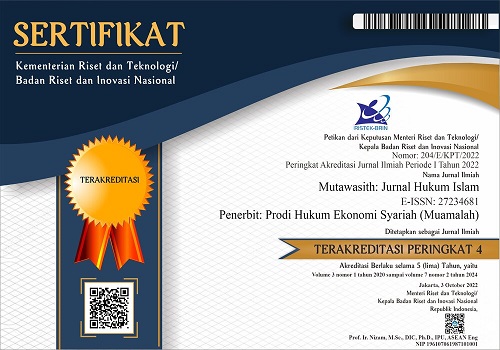Pro Kontra Pengaturan Pencegahan dan Penanganan Kekerasan Seksual di Perguruan Tinggi: Tinjauan Perspektif Hukum Islam
Abstract
The government through the Ministry of Education, Culture,
Research, and Technology issued Ministerial Regulation No. 30 of 2010 to deal with and prevent
sexual violence. However, the regulation has many pros and cons in the community. One of them
is the polemic of the use of the phrase "without the consent of the victim" which is considered the
legalization of adultery, immoral intercourse, and free sex which has the potential to damage the
nation's character and morals and is contrary to social and religious norms, especially the Islamic
religion. This article aims to review these regulations which contain elements of legalizing
adultery, immoral acts, and free sex in the perspective of Islamic law. By using a descriptiveanalytical approach as a result of the normative legal method, it can be concluded that Islamic
law with its source of Islamic law, namely the Qur'an, forbids just approaching adultery,
committing adultery, let alone legalizing it.
Downloads
Copyright (c) 2021 Mutawasith: Jurnal Hukum Islam

This work is licensed under a Creative Commons Attribution 4.0 International License.
Authors retain copyright and grant the journal right of first publication with the work simultaneously licensed under a Creative Commons Attribution 4.0 International License that allows others to share the work with an acknowledgement of the work's authorship and initial publication in this journal.
















.png)




